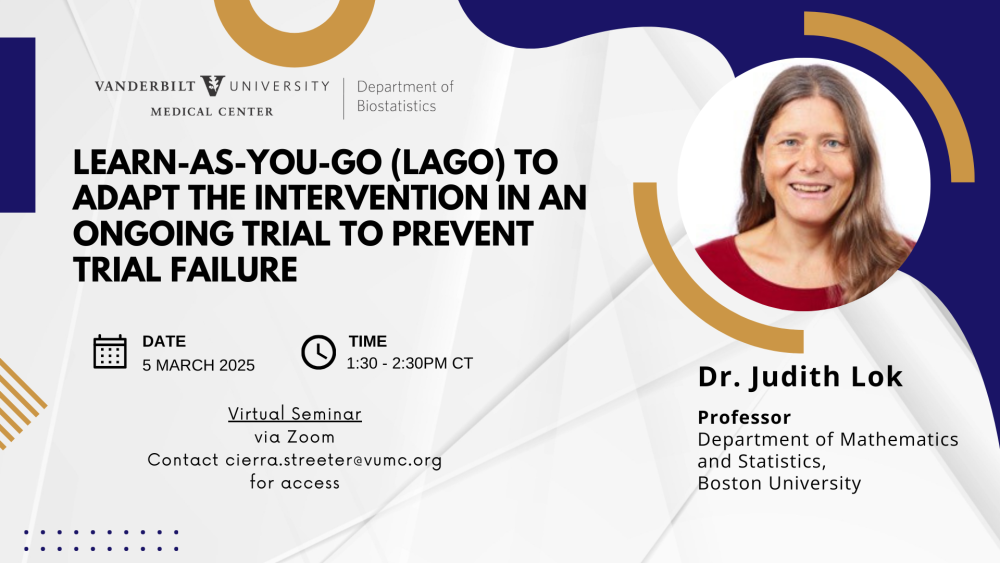
Abstract
Learn-As-You-Go (LAGO) trials optimize the intervention component composition of a multi-component intervention while the trial is ongoing, and the final analysis uses trial data from all stages. LAGO trials are thus adaptive clinical trials. The purpose of LAGO adaptations is to find an intervention that achieves a pre-specified outcome goal, often while minimizing cost. LAGO adaptations can also be used to avoid failed trials, which is especially important if pre-trial expectations are not met. In LAGO trials, the observations from different trial stages are not independent, because the interventions in later stages depend on previous stages' outcomes. Hence, standard statistical methods cannot be used to prove consistency of the intervention effect estimators. Therefore, in LAGO trials, learning is based on summary measures. I will show that estimators based on LAGO trial data are consistent and asymptotically normal, and the null hypothesis of no effect of any of the intervention components can be tested using LAGO trial data from all stages. I will illustrate LAGO with the Better Birth Study, which aimed to improve maternal and neonatal outcomes among 157,689 births in Uttar Pradesh, India through a multicomponent intervention package.
This is joint work with Ante Bing (Boston University), Daniel Nevo (Tel Aviv University), and Donna Spiegelman (Yale).
Department students and members are invited to meet with Dr. Lok after the presentation. Sign-up for your small group appointment here.
Judith Lok is a professor of mathematics and statistics at Boston University. Before joining Boston University, she was on the faculty of the Department of Biostatistics at the Harvard T.H. Chan School of Public Health. Judith received her PhD in mathematical statistics with Aad van der Vaart and Richard Gill at the Free University of Amsterdam in The Netherlands. She was a postdoc at the Leiden University Medical Center and an MS statistician at the Amsterdam Medical Center, both in The Netherlands.